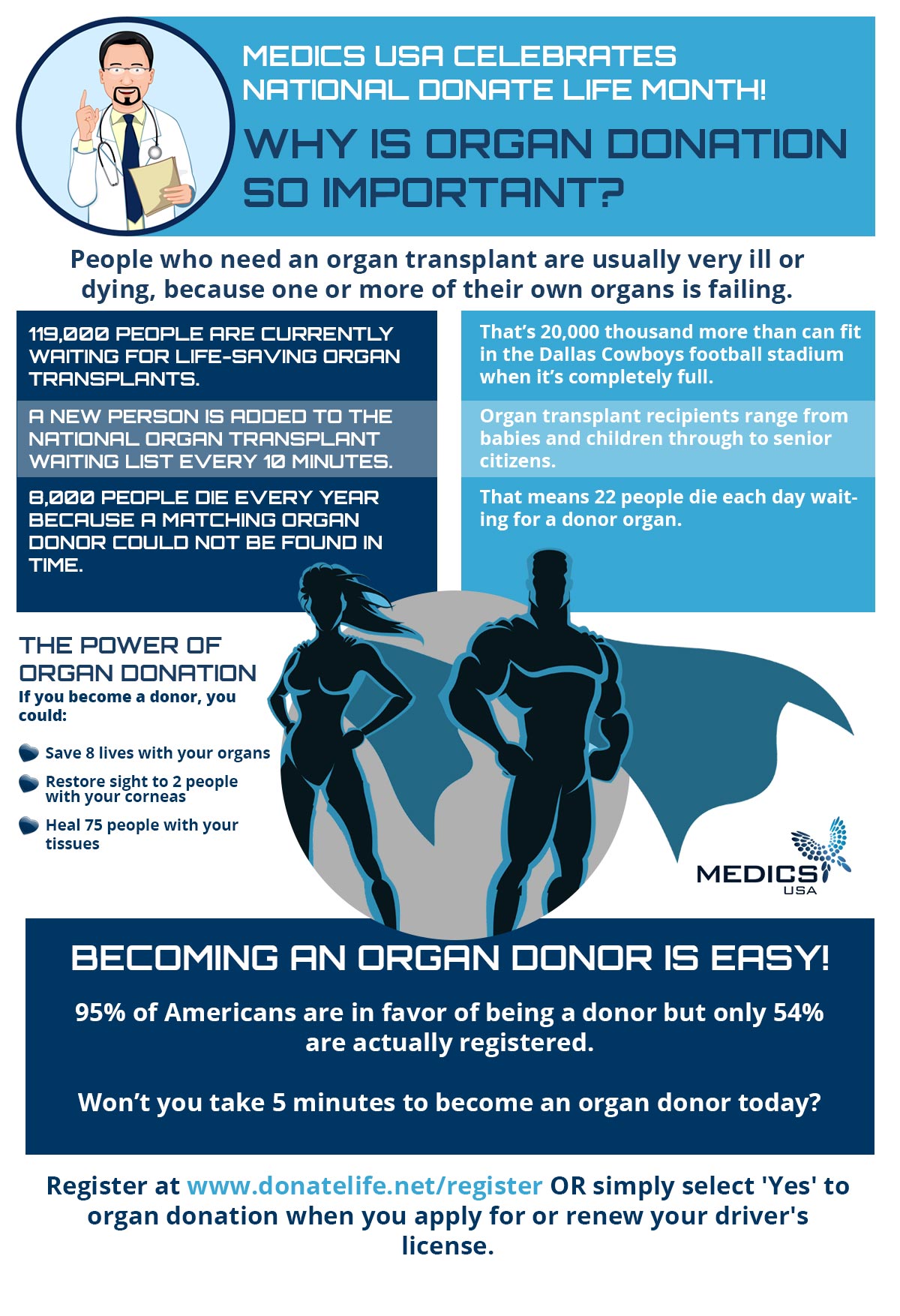Did you know that you don’t have to wear a cape to be a superhero? You don’t even have to be an EMT, surgeon, or primary care doctor to do something so amazing that it actually saves a person’s life. We’re talking about organ donation!
April is officially National Donate Life Month, a time when various organizations and agencies across the country work to raise awareness about the power of organ donation. “NDLM features an entire month of local, regional and national activities to help encourage Americans to register as organ, eye and tissue donors and to celebrate those that have saved lives through the gift of donation,” explains Donate Life America.
Despite the fact that it’s incredibly easy to become an organ donor, and that every year organ donation results in the saving or improvement of thousands of lives, some people still haven’t done it. In today’s blog, the primary care physicians at your Ashburn Medics USA clinic take a look at some of the myths that make people hesitate to become organ donors.
Remember, if you have questions about what it really means to be an organ donor, or want to know more about how organ donation works, contact your primary care doctor today!
3 Things Your Primary Care Doctor Wants You To Know About Organ Donation
Myth: People with medical conditions can’t be organ donors
Fact: Anyone, regardless of medical history, can sign up to be a donor.
Not all illnesses affect all of your internal organs and tissues. In many cases, organs can be donated even if the donor had a terminal illness. Some of the few health conditions that may affect your ability to be a donor include: HIV infection, active cancer, or a systemic infection.
Myth: Only young organs are welcomed for donation.
Fact: There is no age limit on organ donation.
Some people, having reached their golden years, seem to think that they’re too old to become an organ donor, but this simply isn’t true. To date, the oldest donor in the U.S. was age 92. What matters is the health and condition of your organs, not your age, when you pass away.
Myth: If a person is admitted to the hospital as an organ donor, medical professionals won’t try to save their lives.
Fact: Saving your life is the first and only priority when you’re admitted to the hospital under any circumstances.
Some people seem to believe that nurses and doctors are eagerly awaiting patient deaths because they want to harvest their organs. This is morbid and untrue. Organ donation is neither mentioned nor possible until all lifesaving methods have failed.
Why Become An Organ Donor?
Because it saves lives! What better way to create a lasting legacy of kindness, generosity, and encouragement for others than to give your healthy organs to someone who would die without them?
Scroll through the infographic below for more amazing facts about organ donorship and how to become an organ donor during National Donate Life Month! And remember, your Ashburn primary care provider is always available to answer any questions you may have about the process.

[uxi_button link=”post_id-929″ new_window=”0″ tel=”0″ class=”button-block button-block-mobile button-35″ padding_x=”” padding_y=”” text=”Book Your Appointment NOW!” text_size=”14″ text_size_mobile=”” text_font=”header-font” sub_text=”” sub_text_size=”12″ sub_text_size_mobile=”” sub_text_font=”header-font” icon=”arrow-right” icon_size=”12″ icon_size_mobile=”” icon_align=””]

